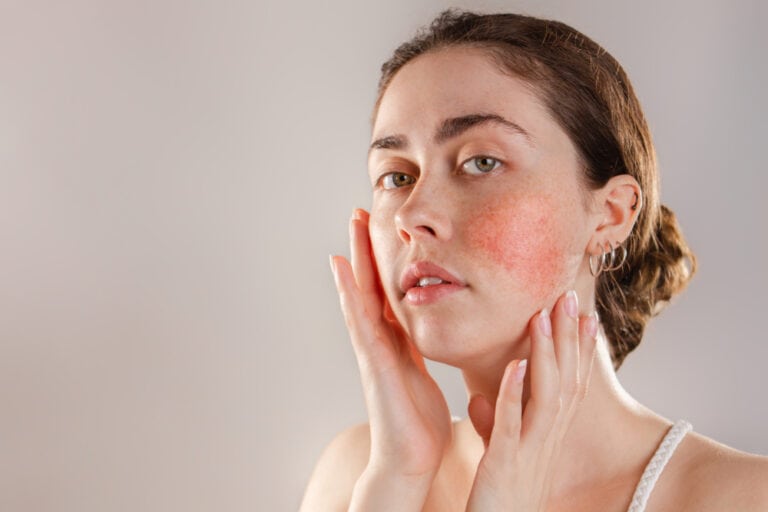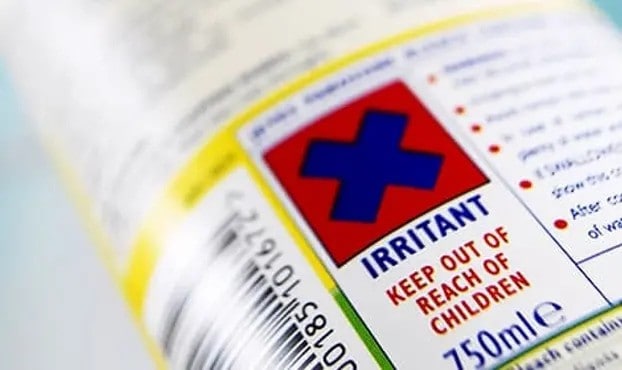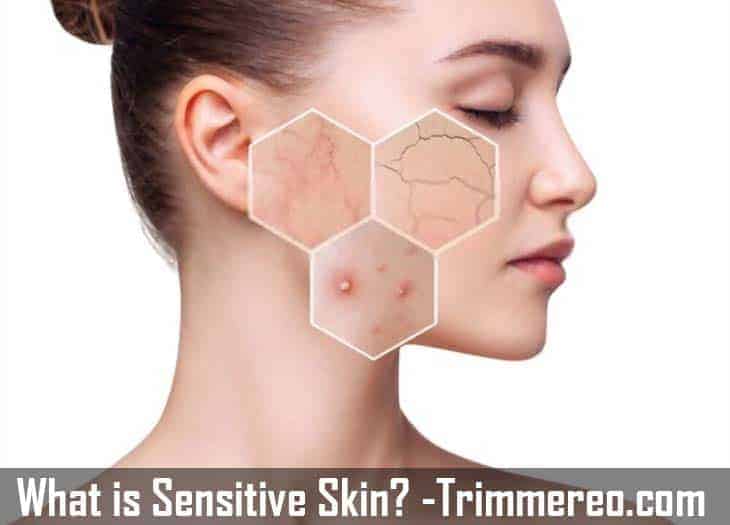In general, we heard these here and there; “my sensitive skin has this problem” or “my sensitive skin has that problem”. So, what do we mean by sensitive skin?
Sensitive skin is not a specific skin type, because any skin, for example dry, oily, or combination skin, can show sensitivities. Sensitive skin is easily irritated, inflamed, or has a low tolerance to cosmetics, detergents, environmental factors, or other skincare products.
Some people are born with sensitive skin, but many people develop sensitivity as they age. The skin can become more sensitive due to a variety of factors, including:
- Hormonal changes, such as those that occur during pregnancy, menopause, and puberty
- Exposure to the sun and other environmental irritants, such as pollution
- Use of irritating ingredients or products in skincare, such as alcohol, fragrance, artificial colors, and harsh detergents
- A skin condition, such as rosacea, eczema, or psoriasis
The natural skin protection barrier is usually not intact and therefore very sensitive. Sensitive skin often lacks protective lipids and good moisture penetration. These restricted functions lead to itching, redness, skin rashes, inflammation, and irritation.

What triggers the sensitivity?
Even if your skin is prone to sensitivity, some factors make symptoms significantly worse. In the following, I have written down some triggers and offered solutions for you.
Dryness:
When skin is dry, it is more susceptible to inflammation.
Solution: Use a gentle, hydrating cleanser and moisturizer every day. Look for products that are labeled “for sensitive skin” or “fragrance-free.”
Excess sun exposure:
Sun exposure is one of the main triggers for skin sensitivity. The sun’s UV rays can cause skin irritation and make skin conditions such as rosacea and eczema worse.
Solution: To protect your skin from the sun’s UV rays, wear sunscreen with an SPF of at least 30. Make sure to apply sunscreen generously, and reapply every two hours.
Heat and humidity:
Heat and humidity can also aggravate skin sensitivity. When the weather is hot and humid, the skin is more prone to sweating and becoming irritated.
Solution: During hot and humid weather, try to stay in air-conditioned areas as much as possible. If you have to go outside, wear light, loose-fitting clothing made of natural fabrics such as cotton.
Harsh chemicals:
Harsh chemicals can also cause skin sensitivity. Chemicals such as detergents, solvents, and pesticides can irritate the skin and make it more prone to inflammation.
Solution: To avoid exposure to harsh chemicals, try to avoid using harsh detergents and cleaning products. When you are exposed to harsh chemicals, wear protective gloves and clothing.
Certain skincare products:
If you are using a new skincare product and your skin becomes irritated, it may be due to an ingredient in the product that your skin is sensitive to.
Solution: Read the ingredient list on skincare products before you buy them. Avoid products that contain potential irritants, such as fragrances, alcohol, and harsh chemicals.
Certain medical conditions:
conditions such as eczema, psoriasis, and rosacea can cause sensitive skin.
Solution: If you have a medical condition that is causing your skin to be sensitive, talk to your doctor about treatment options.
Sensitive skin with strong temperature fluctuations
Sensitive skin reacts quickly to cold, especially when there are strong changes in temperature in winter.
A special form of cold-sensitive skin is the so-called hives (cold urticaria). Typical hives symptoms are redness, itching, and wheals.
Impure and sensitive skin
Impure skin and acne are usually accompanied by an oily sheen. We are often tempted to use alcohol-based products to reduce the skin’s excess production of sebum. However, this can irritate the skin and cause very sensitive reactions.
Therefore, to cleanse your face, use a cleansing lotion or a gentle cleansing fluid that does not dry out the skin but mattifies it very well.
It removes impurities and excess sebum. Gently removes impurities from the skin, Reduces blackheads, and controls shine. The skin is cleansed and refreshed.

To Dos & Don’ts for sensitive skin
| Dos | Don’ts |
|---|---|
| Read labels when shopping for products | Avoid handling harsh cleaners with skin-irritating chemicals |
| Check for “gentle on skin” or “for sensitive skin” | Steer clear of products with skin-irritating ingredients |
| Shorten showers to prevent skin dryness | Avoid using excessive soap, especially with additives |
| Test new products with a patch test | Skip scrubbing the skin with gritty or chemical products |
| Skip fragrance in beauty products | Avoid products with added fragrances, alcohols, or dyes |
| Choose clothing made of softer fabrics | Don’t expose sensitive skin to harsh weather elements |
| Nix nickel in accessories and clothing | Quit smoking for overall health and to prevent skin issues |
| Moisturize with gentle products | Don’t stress; find ways to manage and reduce stress levels |
These are general guidelines, and individual sensitivities may vary. Always consult with a dermatologist or healthcare professional for personalized advice.
Sensitive skin after shaving
A shave is always particularly stressful for the skin because every razor creates friction.
If you have sensitive skin, keep the following things in mind when shaving:
- If possible, choose a razor with multiple blades so that the pressure is more evenly distributed during the shave. Here is a list of my recommended Best Razors For Sensitive Skin.
- Preferably shave wet and use a shaving cream made for sensitive skin.
- Use warm water, not too hot. It opens the hair follicles and softens the hair.
- Clean the blades after every shave and change them regularly. Blunt blades no longer slide so easily over the skin and can lead to irritation and cuts.
- Soothe your skin after shaving with a soothing, non-greasy moisturizer.
I have had a very good experience with Cicaplast Baume B5 as an after-shave balm. It is rich in madecassoside – a regenerating active ingredient, soothing panthenol, and antibacterial agents. Soothes, cares for, and protects dry skin, and contributes to the regeneration of the skin barrier.
Comment your thoughts. I would be happy if I could support you again.

Bradley Martyn – Grooming Expert with 20+ years of first‑hand experience testing electric shavers in the United Kingdom, United States, and United Arab Emirates. My reviews are based on rigorous, real‑world testing and a commitment to transparent, unbiased insights.
Our Testing MethodologyI personally evaluate each shaver through multiple shave cycles, both wet (with cream or gel) and dry, assessing closeness, comfort on sensitive skin, battery endurance, and ease of cleaning.
If you found the information useful, consider subscribing to the Trimmereo newsletter as well. It’s free and I only send a few emails per month. Unsubscribe at any time.

